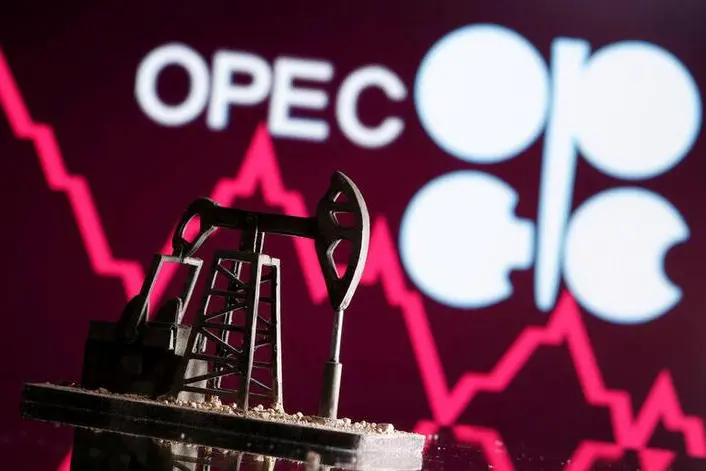PHOTO
OPEC and its allies are meeting today to decide the course of future crude supply. Today's meeting will be held virtually and will start at 1000 GMT.
It is important for the oil cartel and its allies to reach a final decision on output policy after talks were abandoned earlier this month after Saudi Arabia and the UAE failed to reach an agreement on the review of baseline production references.
According Japanese mega-bank MUFG, OPEC+ appears close to reaching a production agreement that would remove the information vacuum that has kept markets guessing on its strategy.
According to reports, the deal will see the OPEC+ agreement extended from its current March 2022 expiry to December 2022 and the UAE’s baseline rise by 15 percent from 3.17million barrels per day to 3.65 million barrels per day from April 2022.
Ehsan Khoman, Head of Emerging Markets Research (EMEA) at MUFG believes that the contours of such a deal articulates to markets that OPEC+ still remains coordinated around a singular message, with tapering of its remaining 5.8 million barrels per day production still to be expected in the months ahead.
Last week Reuters reported that the both the countries have reached a compromise giving Abu Dhabi a new production baseline to allow the extension of the supply agreement until the end of 2022.
However, the UAE's energy minister said in a statement on Wednesday that an agreement had not been reached yet with OPEC+ regarding its position on an extension of an oil supply deal." Deliberations and consultations between concerned parties are ongoing, the statement said.
According to Reuters data, Brent fell almost 3 percent last week, posting a decline for the third week in a row for the first time since April 2020.
Dubai's top lender Emirates NBD expects oil prices to trade at an average of $70 per barrel for the rest of the year.
"Our base scenario is for lower price and our expectation for the remaining of the year is for $70 for brent, which I think is consequent with more supply being readily added to the market,"
Maurice Gravier, Chief Investment Officer, Wealth Management at Emirates NBD said in an interview with Bloomberg.
(Reporting by Seban Scaria; editing by Daniel Luiz)
This article is provided for informational purposes only. The content does not provide tax, legal or investment advice or opinion regarding the suitability, value or profitability of any particular security, portfolio or investment strategy. Read our full disclaimer policy here.
© ZAWYA 2021





















